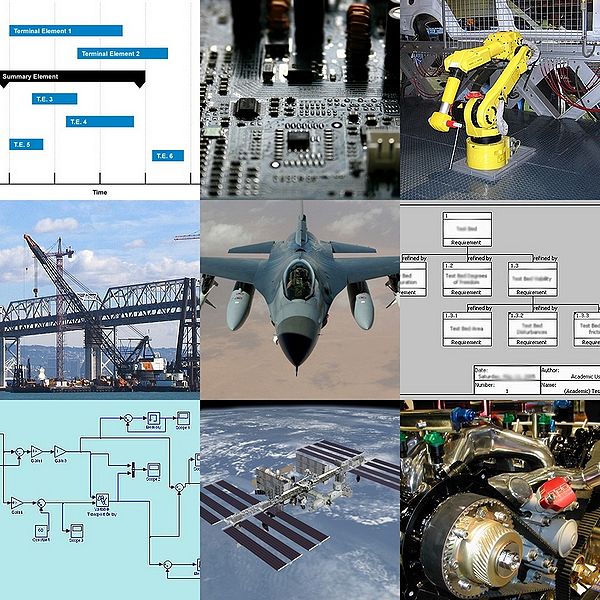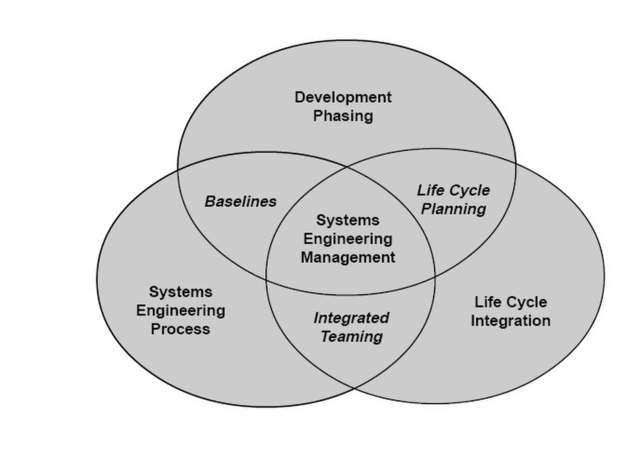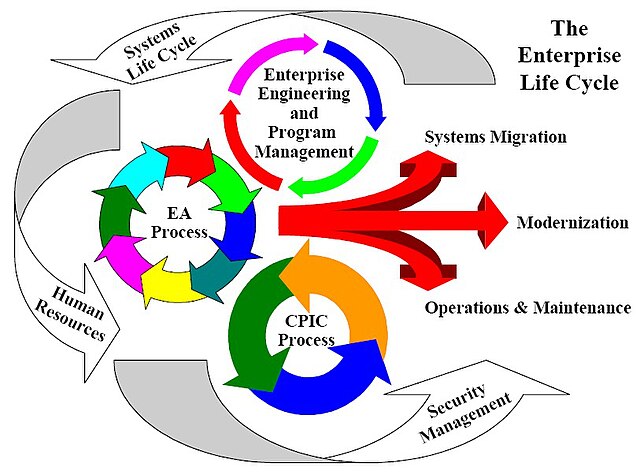Systems engineering is an interdisciplinary field of engineering and engineering management that focuses on how to design, integrate, and manage complex systems over their life cycles. At its core, systems engineering utilizes systems thinking principles to organize this body of knowledge. The individual outcome of such efforts, an engineered system, can be defined as a combination of components that work in synergy to collectively perform a useful function.
Systems engineering techniques are used in complex projects: printed-circuit-board design, robotics, bridge building, software integration, and spacecraft design. Systems engineering uses a host of tools that include modeling and simulation, requirements analysis, and scheduling to manage complexity.
The International Space Station is an example of a very complex system requiring systems engineering.
The scope of systems engineering activities
Image: Systems Engineering Process
Enterprise life cycle (ELC) in enterprise architecture is the dynamic, iterative process of changing the enterprise over time by incorporating new business processes, new technology, and new capabilities, as well as maintenance, disposition and disposal of existing elements of the enterprise.
Illustration of the Enterprise Life Cycle.
Enterprise Architecture Process.
DoDAF Architecture Life Cycle.
TEAF Enterprise Life Cycle activities








